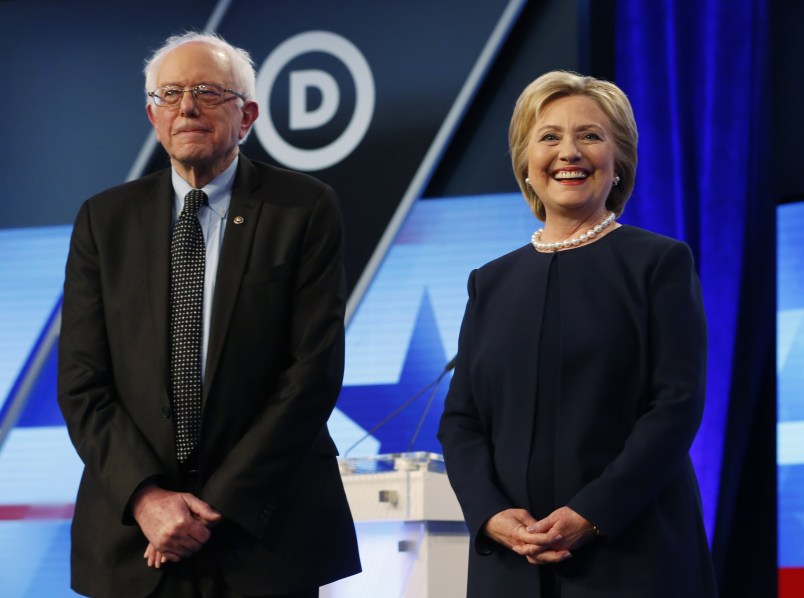I thought both candidates in tonight’s debate did fairly well for themselves, which is to say they were able to convey their key political strengths, touch key points for their supporters, and so forth. In that sense it was probably a wash in electoral terms. Each candidate’s supporters were confirmed in their support. And I did not have the sense that either stood out dramatically from the other in a way that would push late deciding primary voters in one direction or another. The only point I would add to this is that coming off his upset win last night in Michigan, Sanders seemed much more in this election than he did a few days ago. So he seemed much more like an equal sharing the stage with Hillary Clinton. That matters.
I have to say that I found this to be one of the more grating of the Democratic debates I’ve seen so far. In candor, some element of that may be rooted in the fact that our TPM team has watched and covered so many of these debates at this point. Not complaining, just noting the possibility of some level of debate exhaustion bias.
I don’t think that’s it though.
I thought the moderators did a pretty poor job moderating the debate. I don’t mean that their questions weren’t good. I mean how they ran it. They repeatedly interrupted each candidate in the middle of answers or on a schedule that may have been dictated by some agreed upon rule but which felt arbitrary in the context. Worse than that though, they couldn’t actually control the candidates. So you had a mix of constant interruptions – which often disrupted edifying exchanges – combined with an inability to enforce whatever rule they were trying to enforce. The point of a debate is to have the candidates debate, exchange their positions and keep them focused on the questions asked. The rules should further this goal. But they can also get in the way. On this simple point of managing the flow of the debate, I thought the three moderators lost the sight of the forest for the trees.
Equally trying was the fact that through much of the debate the candidates were struggling to find cutting attacks against each other on issues on which they overwhelmingly agree. Campaigns are about differences; so this isn’t terribly surprising. It has some value, at least within reason. But through many of the exchanges it seemed like two people struggling to find something to argue about.
Some of moderator questions seemed excessively sharp. But there’s never anything wrong with seeing how candidates will respond to a tough question. And they seemed to treat each side with equal aggression. So whatever.
For me the most interesting part of the debate was the portion on Latin America. This was a debate aimed at Hispanic Americans. So that makes perfect sense. But it also provided a window into the unique geographic and culture place of Florida, and especially South Florida – where Cuba, Puerto Rico, the Caribbean, Central America and the rest of Latin America aren’t just things we in the rest of the country hear about when something goes wrong but a key part of regional news. As many have noted before, South Florida is part of a region, much of which is not in the United States.
One big takeaway for me was that there was relatively little between the two candidates which went to the real essence of this contest – an establishment politician with a long history of pushing for incremental change within the system and an outsider who talks about transforming the country in line with left-liberal values but would be deeply challenged to bring about that change in a country closely divided on partisan lines. That’s the real issue between these two candidates. The policy disagreements all stem from that basic division. But that essential contrast mostly felt submerged in a kind of cheap-shotty back and forth about specific points of policy or gotchas tied to things that happened 3 or 10 or 30 years ago.
On balance, I think it was a draw. That normally means it’s a win for the frontrunner, which Clinton still very much is. But she’s not quite as much the front runner as she was 48 hours ago. So overall, a draw.






